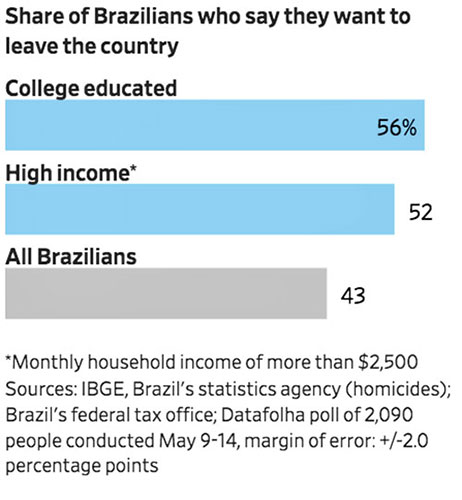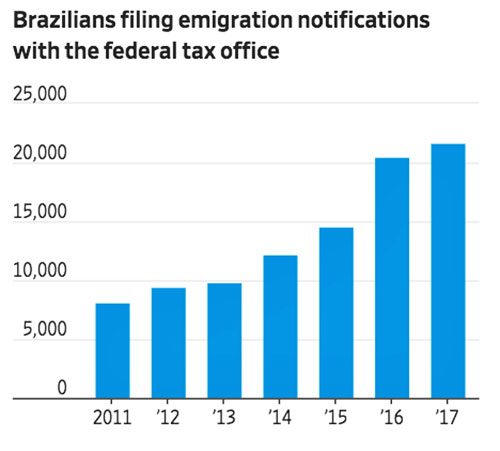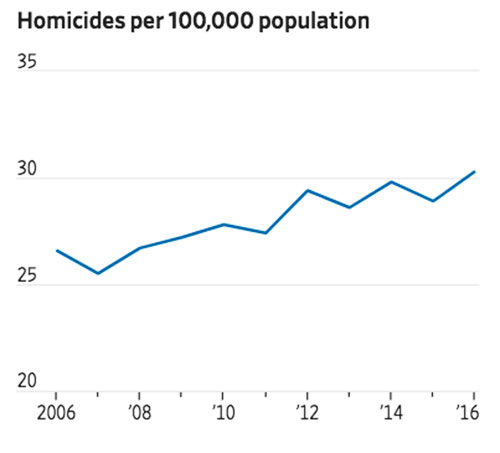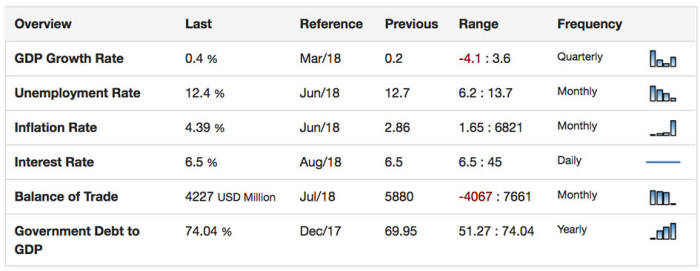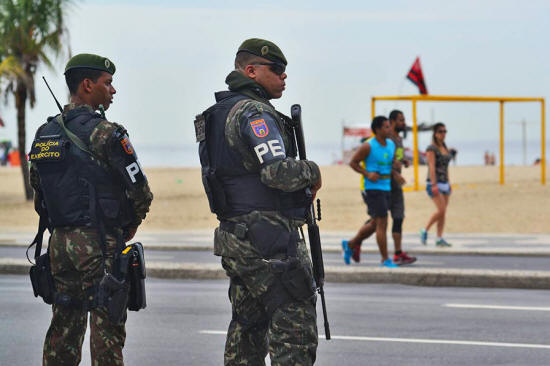|
by
Samantha Pearson
and
Luciana Magalhaes from WSJ Website
patrolled a beach in Rio de Janeiro in June.
Mauro
Pimentel/Agence France-Presse/Getty Images
Shaken by violence, thousands of TV stars, bankers, lawyers and wealthy Brazilians are fleeing the country...
Wealthy Brazilians are
fleeing the country, terrified by spiraling gun violence and
pessimistic about the nation's political and economic future.
For months, the 40-year-old actor has been agonizing over whether to move his family to Europe for the safety of his three young children.
Unlike Central Americans fleeing to the U.S. because of gang violence or in search of work, these Brazilians are often members of the country's elite,
About 52% of the richest Brazilians - those with a monthly household income of more than $2,500 - want to emigrate, while 56% of college-educated Brazilians want to leave, according to a study published in June by Brazilian polling agency Datafolha.
Overall, 43% of Brazilians would emigrate if they could.
Brazil's government has struggled to keep track of how many of its citizens live abroad, but a series of recent studies paint a dismal picture.
With the October
presidential elections approaching, 41% more Brazilians have
registered to vote from abroad than in 2014, according to government
figures.
Many are moving to
exclusive enclaves on the Portuguese Riviera and to U.S. cities such
as Orlando and Miami.
In the affluent Urca
neighborhood, where locals go to watch the sunset, six dead bodies
recently washed up on the rocks.
A couple of months later,
he said his father was held up by gunmen.
About 62% of 16- to
24-year-olds would emigrate if they could, according to
Datafolha.
For those with a good
education, leaving "looks like a good decision," he said.
But Portugal, the colonial motherland, is fast becoming Brazilians' so-called Plan B.
There are now 85,000
Brazilians living in Portugal, the largest community of foreign
nationals, including many retirees lured by tax incentives,
Portugal's immigration and border service said.
The U.K. is another
popular choice, as is Switzerland - the adopted home of Brazil's
richest man, Jorge Paulo Lemann, who relocated there in 1999
after gunmen tried to kidnap his children on the way to school in
São Paulo.
Joseph Williams, a U.S. businessman who moved to Brazil eight years ago, said Brazilians can't understand why he is still here.
Only this week in São Paulo, where he runs a real-estate advisory and investment firm, two men robbed the drivers in the car next to his at the traffic lights.
But for many Brazilians, leaving is the last resort.
Still, for Mr. Melo, the e-commerce manager, life in Portugal has more appeal.
He is looking forward to simple things, like being able to answer his cellphone in the street - something he said he no longer does in Rio for fear of it being stolen.
at Copacabana beach in Rio in April. Photo: Erbs Jr./AGIF/Associated Press
|




